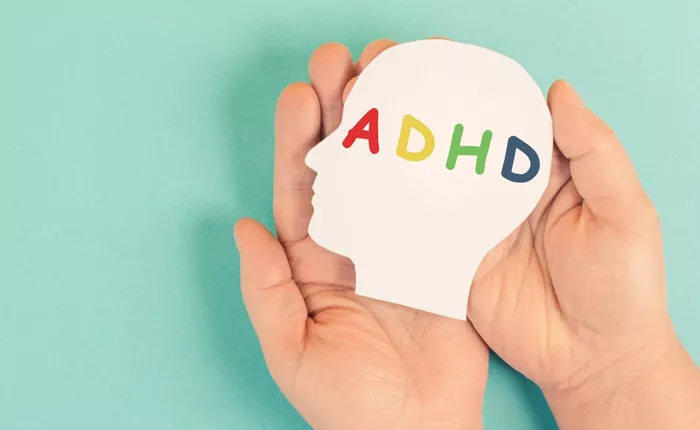Attention-Deficit/Hyperactivity Disorder (ADHD) is one of the most common mental health conditions that affect children and adults. It is often misunderstood, leading to confusion about its causes, symptoms, and how it should be treated. One of the most important questions people ask is: Is ADHD a neurodevelopmental disorder? The answer is yes, but to fully understand why, we need to look closely at what ADHD is, how it affects the brain, and how professionals classify it.
This article will explain the nature of ADHD in simple terms, clarify its classification as a neurodevelopmental disorder, and help readers understand what this means for those who are diagnosed with it.
What Is a Neurodevelopmental Disorder?
A neurodevelopmental disorder is a condition that begins in early childhood and affects how the brain grows and works. These disorders impact basic functions such as attention, memory, social behavior, and learning. They often continue into adulthood and can interfere with daily life.
Examples of neurodevelopmental disorders include:
- Autism Spectrum Disorder (ASD)
- Intellectual disabilities
- Communication disorders
- Specific learning disorders
- ADHD
Neurodevelopmental disorders are caused by differences in the development of the nervous system. These differences can result from genetics, environment, or other unknown factors.
Is ADHD a Neurodevelopmental Disorder?
Yes, ADHD is officially classified as a neurodevelopmental disorder. This classification is recognized by medical and psychiatric organizations around the world, including the American Psychiatric Association (APA) and the World Health Organization (WHO).
In the Diagnostic and Statistical Manual of Mental Disorders, Fifth Edition (DSM-5), ADHD is listed under the section titled “Neurodevelopmental Disorders.” This clearly shows how mental health professionals view ADHD—as a brain-based condition that starts early in life.
Why Is ADHD Considered a Neurodevelopmental Disorder?
There are several reasons why ADHD is classified as a neurodevelopmental disorder:
1. Early Onset in Childhood
ADHD symptoms usually appear before the age of 12. In many cases, signs are noticed as early as preschool. This early start is a key feature of neurodevelopmental disorders.
2. Brain Function Differences
Research shows that people with ADHD have differences in certain brain areas. These areas include parts of the brain that control attention, impulse control, and activity levels. Studies using brain scans (like MRIs) show that these regions may develop more slowly or work differently than in people without ADHD.
3. Genetic Influence
ADHD tends to run in families, suggesting a strong genetic link. Neurodevelopmental disorders often have a genetic basis, where certain inherited traits affect brain development.
4. Lasting Effects
While symptoms may change over time, many people continue to experience ADHD into adulthood. Like other neurodevelopmental disorders, ADHD is not just a phase—it is a long-term condition.
What Are the Main Symptoms of ADHD?
ADHD symptoms fall into two main categories:
Inattention: Trouble focusing, being easily distracted, forgetting things, and not following through on tasks.
Hyperactivity and Impulsivity: Fidgeting, acting without thinking, talking too much, and difficulty staying still.
Some people have mostly inattentive symptoms (formerly called ADD), some have mostly hyperactive/impulsive symptoms, and others have a mix of both.
How Does ADHD Affect a Person’s Life?
ADHD can impact many areas of life, such as:
- School or work performance
- Relationships with friends or family
- Self-esteem and mental health
However, with the right support, people with ADHD can lead happy, successful lives. Early diagnosis and treatment are key.
How Is ADHD Diagnosed?
There is no single test to diagnose ADHD. Instead, healthcare providers gather information from different sources. This may include:
- Medical history
- Reports from parents, teachers, or caregivers
- Observations of behavior
- Rating scales and questionnaires
A proper diagnosis should be made by a qualified professional, such as a pediatrician, psychologist, or psychiatrist.
What Causes ADHD?
The exact cause of ADHD is not known, but research suggests it may be due to a mix of:
- Genetics: ADHD often runs in families.
- Brain structure and function: Some brain areas may work differently in people with ADHD.
- Premature birth or low birth weight
- Exposure to toxins during pregnancy, like alcohol or tobacco
It’s important to note that poor parenting, eating too much sugar, or watching too much TV do not cause ADHD.
Treatment Options for ADHD
There is no cure for ADHD, but it can be managed with a combination of approaches:
1. Medication
Stimulant medications (like Ritalin or Adderall) are commonly prescribed. They help increase attention and reduce impulsivity.
2. Behavioral Therapy
Therapists can work with children and parents to create routines, reinforce good behavior,and develop coping skills.
3. School Support
Special education services or classroom accommodations can help children with ADHD succeed in school.
4. Lifestyle Changes
A healthy diet, regular exercise, and consistent sleep can improve symptoms.
ADHD in Adults
Although ADHD is often diagnosed in childhood, many adults continue to experience symptoms. Adult ADHD may look different, often showing up as:
- Trouble managing time
- Forgetfulness
- Difficulty finishing tasks
- Impulsive decisions
Adults with ADHD can benefit from therapy, coaching, medication, and support groups.
Misunderstandings About ADHD
There are many myths about ADHD, such as:
- “It’s just bad behavior.”
- “Only children have it.”
- “People with ADHD are lazy.”
These statements are not true. ADHD is a real medical condition. It affects how the brain works and how a person behaves, and it requires understanding, not judgment.
Conclusion
ADHD is clearly a neurodevelopmental disorder. It starts early in life, involves differences in brain development, and can last into adulthood. Understanding this helps reduce stigma and supports better care for those who live with the condition.
With proper diagnosis, treatment, and support, people with ADHD can thrive in every area of life. Recognizing ADHD as a neurodevelopmental disorder is the first step toward acceptance, education, and progress.
Related topics:
- Is ADHD in the DSM-5?
- Is ADHD Considered on the Spectrum?
- Adhd And Life: Can The Condition Change As You Age?


